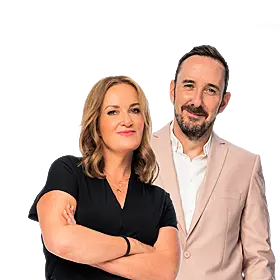The President Michael D Higgins has praised the work of Irish aid agencies in Africa, describing their efforts as "heroic".
The Irish government meanwhile has pledged an extra €2m to assist South Sudanese refugees in Ethiopia, following a renewed intensity of violence there.
NGO’s and civilians have been bracing themselves for the outbreak, following a temporary lull in hostilities; triggered only because of difficulties in mobilising militants and troops during the country’s heavy rainy season.
Minister of state Sean Sherlock made the announcement in Ethiopia during President Higgins three week state visit to Africa which started on Sunday, taking in Malawi and South Africa also.
Image: Fennell Photography
A number of Irish Aid agencies have been assisting the humanitarian effort in South Sudan and Ethiopia; President Higgins yesterday visited programmes run by GOAL and CONCERN on the Ethiopian border with South Sudan.
"I just want to say how proud I am of the Irish state assistance; and agencies such as GOAL and CONCERN and other NGO’s that have stepped into the breach - the people of Ireland can be very proud of the volunteers, of people who are here giving their skills, and of all Irish people who are assisting the NGO’s in every way", said Mr Higgins at a refugee camp in Gambella.
Image: Fennell Photography
"The Irish government has stayed - even in contracted economic times - within its aid commitment", this and "the presence of Irish NGO’s - including Trocaire and Oxfam Ireland, as well as the peace keeping missions abroad, make up the core elements of Ireland’s reputation."
Ethiopia is on track to receive €136m from Ireland over the next 5 years; "you couldn’t be spending it better", said President Higgins.
"The staff at the NGO’s is doing work that I would only describe as heroic - if you were to see the size of the problem, the scale, and the terrain in which they work."
1.7 million displaced from their homes
Over 1.7 million people have been displaced from their homes in the world’s newest state, with over 190,000 fleeing to nearby Ethiopia as a result of a conflict which is now reaching civil war proportions.
The president called for more countries to increase their commitment to South Sudan’s growing humanitarian crisis: "These are our fellow citizens and our fellow children of the planet; I appeal “to governments to increase their assistance to the region."
Fighting broke out in South Sudan on December 15th in 2013, after deep political tensions came to a head between soldiers loyal to President Salva Kir and deposed Prime Minister Riek Machar. Within hours, the dispute broke down along ethnic lines among the two main tribes - 'Dinka' and 'Nuer' - with massacres taking place on the streets of the capitals Juba and other parts of the country.
Nyakuma Keaka (30) from Malakal City - a flash point for much of this year’s violence - fled to Ethiopia with her 3-year-old daughter, after witnessing the killing of her other three children.
Image: Fennell Photography
"I saw them being shot by Dinka soldiers, they were coming across the road, home from school. When they tried to come home, they were shot on the street."
"I saw so many people killed, shot; they even burned some people; and the bodies from others."
"All I could do was get to the border with my daughter there was nothing I could do; their bodies are still there, in our village in Malakal. Only God know now what to do."
The government of Addis Ababa is commended for its role in hosting peace talks between President Kiir and rebel leader Riek Machar, although attempts on a meaningful ceasefire or resolution have proved fruitless.
Africa and human rights
Ethiopia’s own poor human rights record, and severe clampdown on opposition groups, human rights activist and journalists is often absent from the narrative in discussing its progress as a once famine-stricken state in the 1970’s and 80’s.
New laws that prohibit foreign NGOs from addressing fundamental human rights concerns were imposed in 2009; the ‘Charities and Societies Proclamation’ bars work on advocacy around the rights of women and children as well as the area of ‘good governance’.
Earlier in the week, President Higgins raised the issue of human rights in Ethiopia and Africa in general, with President Mulatu Teshome and Prime Minister Hailemariam Desalegn.
Image: Fennell Photography
"I had an opportunity of discussing human rights with the president and prime minister; human rights in Africa generally” said the president, whose meetings also involved the signing of 3 bi-lateral agreements on taxation, development and transport."
"We discussed how, there were essential, basic rights of the person, which included rights of freedom; we discussed it in terms of acts of privacy, in relation to sexual rights."
"We discussed it [human rights] in relation to what it meant when a country was in transition from authoritarian systems – something we’d know about ourselves. I also explicitly raised the question of the freedom to criticise and the issue of journalist’s freedoms."
"We discussed the threat of fundamentalism, posing new threats in Africa; they all arose in the context of human rights", said Higgins of the meetings.
President Higgins is giving a key note address at the UN Economic commission for Africa today where he will discuss issues relating to climate change, food security, and also stress the importance of Africa for Irish foreign policy recognising Ireland’s experience with colonialism with that of most African states.
Newstalk's Shona Murray is travelling with President Higgins













